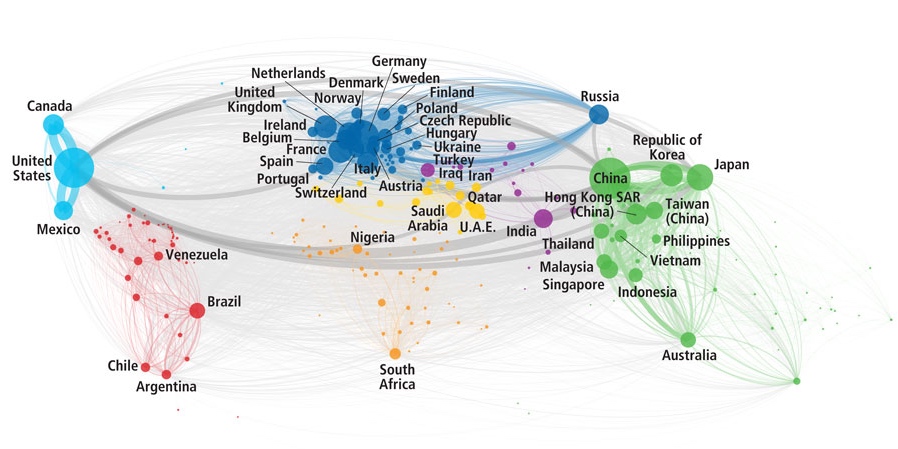Interview with Michael Covel of Trend Following
Trend Following Radio |

By Michael Covel
Michael Covel interviews Parag Khanna. Parag is an international relations expert, a CNN Global Contributor and Senior Research Fellow at the National University of Singapore. He is also the Managing Partner of Hybrid Reality, a geostrategic advisory firm, and Co-Founder & CEO of Factotum. Parag’s new book, “Connectography: Mapping the Future of Global Civilization” recently came across Michael’s desk. The concept of connectivity does not just relate to mobile phones and Skype. There is a very physical and tangible evolution of connectivity that can be boiled down into three categories; transportation, energies and communications.
Michael and Parag start the podcast off touching on what connectivity is and then dive into the relationship between cities and states. Parag says that there is not one single successful state that is not built upon the stability of their successful cities. We have more mega and viable cities than states in the world. Cities are the drivers of growth. More mayors are sitting heads of states or presidents nowadays than any other time in history and think of themselves as CEO’s rather than politicians.
Next, Parag elaborates on supply chains. The diversity of products available today is truly global. A product can have digital design from Silicon Valley, assembly in China, and a call center for product customer support in Vietnam. As a business, the combination of infrastructure investment and connecting through supply chains to global markets makes you a real player in the economy. Michael brings up the economical impact that globalization has made, in particular to taxes. Apple is working with Ireland to keep their investments outside the U.S. More and more companies are realizing that they can operate over “the cloud.” Markets are everywhere and sales are everywhere so investments should be able to be everywhere as well. American politicians have been counter productive in trying to capture taxes from some of the biggest companies in America.
Michael brings the conversation back to China and their infrastructure. China has made a global plan to help counties boost their infrastructure. They are spending their own money to help gain trust and also smooth the flow of goods in and out of developing countries by building railways, airports and shipping ports. Most of the world trade growth is happening across the Indian Ocean because of the Chinese.
Next, Michael brings up country borders and the reservations citizens may have about immigrants. No country has gained more from accepting immigrants into their society than America Parag argues. Parag says that unfortunately people are acting more with their hearts rather than acting on the data. There are far more benefits to welcoming immigrants into societies as opposed to shutting them out. People talk about globalization doing us wrong. It is not. It is political governments that are failing. Policies in politics are the problem.
Michael and Parag finish up discussing the booming rise of Dubai, and how the city is a perfect example of infrastructure growing a city. Dubai has thought strategically about all their expansion, from their roads to their buildings to their education system. It’s a place that represents a leap in quality of life for people who are on the move and doing different things.
In this episode of Trend Following Radio:
- Supply chains
- Connectivity
- Cities vs. State
- Chinese infrastructure growth
- Trade
- Trust among China’s neighbors
- Territory borders
- Globalization
- Winners and losers in the 21st century
- The idea of “not in my backyard”
- Growth of Dubai
“The truth is that winners and losers in the 21st century will be determined by old versus new. Not any of these ideological things. Who has newer and better stuff and is able to maximize the utility of that stuff to improve the welfare of their population.” – Parag Khanna
Get your copy of Connectography here.